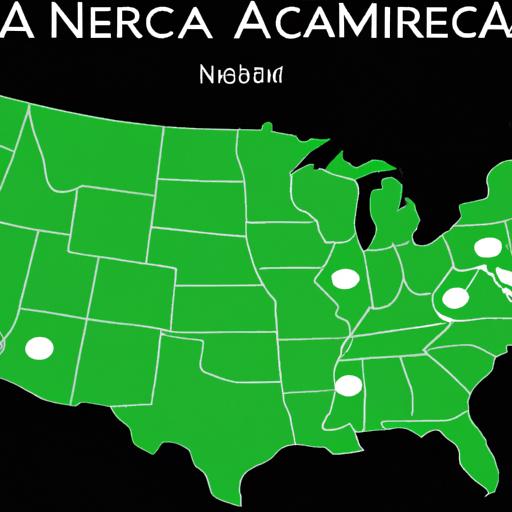Online Gambling Regulations: A Global Overview
Introduction
Online gambling has become a booming industry, with millions of people worldwide participating in various forms of online betting and gaming. As the popularity of online gambling continues to rise, governments around the world are implementing regulations to ensure fair play, protect consumers, and prevent illegal activities. In this article, we will provide a comprehensive global overview of online gambling regulations, examining the diverse approaches taken by different regions and countries. By understanding these regulations, players, operators, and policymakers can navigate the complex landscape of online gambling with confidence.

North America
United States
The United States has a complex regulatory framework for online gambling, with federal and state-level regulations interplaying. While federal regulations such as the Unlawful Internet Gambling Enforcement Act (UIGEA) prohibit certain forms of online gambling, the power to regulate and legalize online gambling is largely left to individual states. This has led to variations in regulations and the emergence of a growing number of states legalizing online gambling, including online sports betting and online casinos. Recent developments, such as the legalization of online gambling in Michigan and New Jersey, highlight the potential for further expansion in the industry.
Canada
In Canada, online gambling regulations fall under the jurisdiction of both the federal government and individual provinces. While the federal Criminal Code prohibits most forms of online gambling, provinces have the authority to operate online gambling platforms and issue licenses to operators. This has resulted in a diverse online gambling landscape across the country, with popular platforms like PlayOLG and PlayNow operating at the provincial level. However, challenges persist, such as the presence of unregulated offshore gambling sites and the need for potential legal reforms to address these concerns.
Europe
United Kingdom
The United Kingdom has established a comprehensive regulatory framework for online gambling through the Gambling Act 2005. The UK Gambling Commission is the regulatory authority responsible for issuing licenses, ensuring fair play, and promoting responsible gambling. Stringent advertising regulations and initiatives to tackle problem gambling have been implemented, setting a high standard for player protection and industry transparency. The recent impact of Brexit on online gambling regulations remains an ongoing consideration, as the UK navigates its relationship with the European Union.
Germany
Germany has experienced a significant evolution in online gambling regulations. Initially, online gambling was largely prohibited, with only sports betting being allowed under certain conditions. However, recent changes have paved the way for the regulation of online casinos and poker. The Interstate Treaty on Gambling 2021 aims to create a unified regulatory framework across the country, granting licenses to operators and establishing player protection measures. The implementation of these regulations will shape the future of online gambling in Germany.
Asia
China
China maintains strict regulations on most forms of online gambling. The country has a longstanding ban on online gambling activities, driven by concerns over social issues and illegal gambling operations. However, despite the ban, underground gambling remains prevalent, posing challenges for law enforcement. Macau, a special administrative region of China, operates under a different regulatory framework and is recognized as a major gambling destination with its own set of regulations.
Japan
In Japan, gambling regulations have undergone significant changes in recent years. Historically, gambling was tightly controlled and limited to specific activities. However, the legalization of casinos and the development of integrated resorts have opened up new possibilities for online gambling. The government has also prioritized responsible gambling measures and sought public opinion to shape the regulatory landscape. These developments present both opportunities and challenges for online gambling operators and players in Japan.
Oceania
Australia
Australia has its own set of regulations governing online gambling through the Interactive Gambling Act 2001. The act prohibits the provision of online gambling services to Australian residents, but it does not criminalize individual players. Despite this, offshore gambling platforms continue to operate, raising concerns about consumer protection and the effectiveness of current regulations. The industry faces ongoing debates regarding potential reforms to address these issues and strike a balance between player choice and responsible gambling.
New Zealand
In New Zealand, online gambling regulations are governed by the Gambling Act 2003 and its subsequent amendments. The Department of Internal Affairs oversees licensing and compliance, ensuring that operators meet strict standards of integrity and player protection. While the regulations focus on preventing harm and problem gambling, the rise of offshore gambling platforms challenges the effectiveness of these measures. Ongoing discussions and potential reforms aim to create a more robust regulatory framework for online gambling in New Zealand.
Conclusion
Online gambling regulations vary significantly across the globe, reflecting the diverse approaches taken by different countries and regions. Understanding these regulations is crucial for players, operators, and policymakers to navigate the complexities of the industry. From the evolving landscape of North America to the comprehensive frameworks in Europe and the unique challenges in Asia and Oceania, the global overview of online gambling regulations highlights the need for international cooperation and harmonization. As online gambling continues to evolve, staying informed about the latest regulations and trends will be paramount for all stakeholders involved.